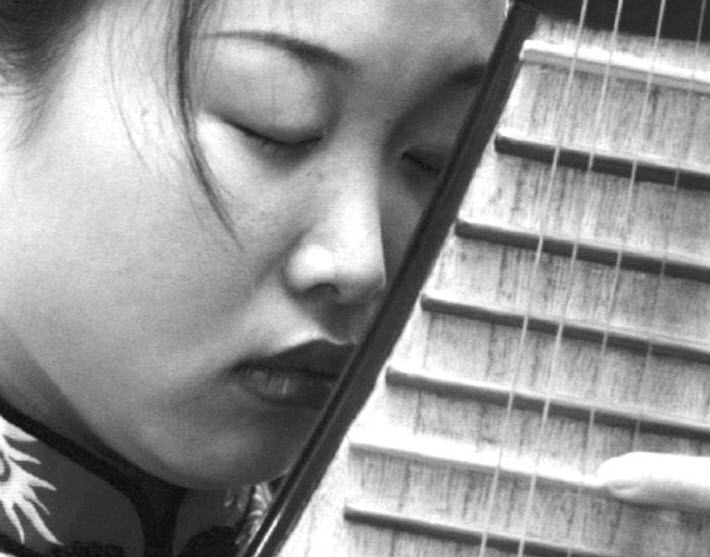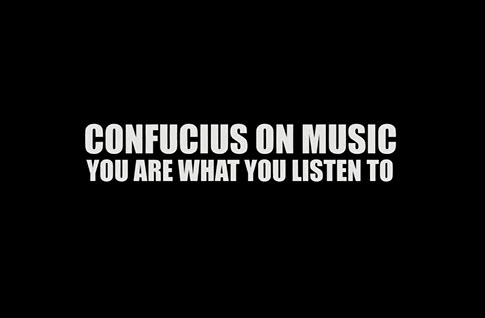924
Lectures Watched
Since January 1, 2014
Since January 1, 2014
- A History of the World since 1300 (68)
- History of Rock, 1970-Present (50)
- A Brief History of Humankind (48)
- Chinese Thought: Ancient Wisdom Meets Modern Science (35)
- The Modern World: Global History since 1760 (35)
- The Bible's Prehistory, Purpose, and Political Future (28)
- Introduction aux éthiques philosophiques (27)
- Jesus in Scripture and Tradition (25)
- Roman Architecture (25)
- Sexing the Canvas: Art and Gender (23)
- Descubriendo la pintura europea de 1400 a 1800 (22)
- Introduction aux droits de l'homme (19)
- Buddhism and Modern Psychology (18)
- Calvin: Histoire et réception d'une Réforme (17)
- The Ancient Greeks (16)
- À la découverte du théâtre classique français (15)
- The French Revolution (15)
- Letters of the Apostle Paul (14)
- Key Constitutional Concepts and Supreme Court Cases (14)
- Christianisme et philosophie dans l'Antiquité (14)
- Egiptología (12)
- Western Music History through Performance (10)
- The Rise of Superheroes and Their Impact On Pop Culture (9)
- The Great War and Modern Philosophy (9)
- Alexander the Great (9)
- Greek and Roman Mythology (9)
- Human Evolution: Past and Future (9)
- Phenomenology and the Conscious Mind (9)
- Masterpieces of World Literature (8)
- Villes africaines: la planification urbaine (8)
- Greeks at War: Homer at Troy (7)
- Pensamiento Científico (7)
- MongoDB for Node.js Developers (7)
- Fundamentos de la escritura en español (7)
- Introduction to Psychology (7)
- Programming Mobile Applications for Android (7)
- The Rooseveltian Century (6)
- Karl der Große - Pater Europae (6)
- Fake News, Facts, and Alternative Facts (6)
- Reason and Persuasion Through Plato's Dialogues (6)
- The Emergence of the Modern Middle East (6)
- A Beginner's Guide to Irrational Behavior (6)
- Lingua e cultura italiana: avanzata (6)
- L'avenir de la décision : connaître et agir en complexité (5)
- Understanding Einstein: The Special Theory of Relativity (5)
- Dinosaur Paleobiology (5)
- Exploring Beethoven's Piano Sonatas (5)
- War for the Greater Middle East (4)
- Emergence of Life (4)
- Introduction to Public Speaking (4)
- The Kennedy Half Century (4)
- Problèmes métaphysiques à l'épreuve de la politique, 1943-1968 (4)
- Designing Cities (4)
- Western Civilization: Ancient and Medieval Europe (3)
- Paleontology: Early Vertebrate Evolution (3)
- Orientierung Geschichte (3)
- Moons of Our Solar System (3)
- Introduction à la philosophie de Friedrich Nietzsche (3)
- Devenir entrepreneur du changement (3)
- La Commedia di Dante (3)
- History of Rock and Roll, Part One (3)
- Formation of the Universe, Solar System, Earth and Life (3)
- Initiation à la programmation en Java (3)
- La visione del mondo della Relatività e della Meccanica Quantistica (3)
- The Music of the Beatles (3)
- Analyzing the Universe (3)
- Découvrir l'anthropologie (3)
- Postwar Abstract Painting (3)
- The Science of Religion (2)
- La Philanthropie : Comprendre et Agir (2)
- Highlights of Modern Astronomy (2)
- Materials Science: 10 Things Every Engineer Should Know (2)
- The Changing Landscape of Ancient Rome (2)
- Lingua e letteratura in italiano (2)
- Gestion des aires protégées en Afrique (2)
- Géopolitique de l'Europe (2)
- Introduction à la programmation en C++ (2)
- Découvrir la science politique (2)
- Our Earth: Its Climate, History, and Processes (2)
- The European Discovery of China (2)
- Understanding Russians: Contexts of Intercultural Communication (2)
- Philosophy and the Sciences (2)
- Søren Kierkegaard: Subjectivity, Irony and the Crisis of Modernity (2)
- The Fall and Rise of Jerusalem (2)
- The Science of Gastronomy (2)
- Galaxies and Cosmology (2)
- Introduction to Classical Music (2)
- Art History for Artists, Animators and Gamers (2)
- L'art des structures 1 : Câbles et arcs (2)
- Russian History: from Lenin to Putin (2)
- The World of Wine (1)
- Wine Tasting: Sensory Techniques for Wine Analysis (1)
- William Wordsworth: Poetry, People and Place (1)
- The Talmud: A Methodological Introduction (1)
- Switzerland in Europe (1)
- The World of the String Quartet (1)
- Igor Stravinsky’s The Rite of Spring (1)
- El Mediterráneo del Renacimiento a la Ilustración (1)
- Science of Exercise (1)
- Социокультурные аспекты социальной робототехники (1)
- Russian History: from Lenin to Putin (1)
- The Rise of China (1)
- The Renaissance and Baroque City (1)
- Visualizing Postwar Tokyo (1)
- In the Night Sky: Orion (1)
- Oriental Beliefs: Between Reason and Traditions (1)
- The Biology of Music (1)
- Mountains 101 (1)
- Moral Foundations of Politics (1)
- Mobilité et urbanisme (1)
- Introduction to Mathematical Thinking (1)
- Making Sense of News (1)
- Magic in the Middle Ages (1)
- Introduction to Italian Opera (1)
- Intellectual Humility (1)
- The Computing Technology Inside Your Smartphone (1)
- Human Origins (1)
- Miracles of Human Language (1)
- From Goddard to Apollo: The History of Rockets (1)
- Hans Christian Andersen’s Fairy Tales (1)
- Handel’s Messiah and Baroque Oratorio (1)
- Theater and Globalization (1)
- Gestion et Politique de l'eau (1)
- Une introduction à la géographicité (1)
- Frontières en tous genres (1)
- Créer et développer une startup technologique (1)
- Découvrir le marketing (1)
- Escribir para Convencer (1)
- Anthropology of Current World Issues (1)
- Poetry in America: Whitman (1)
- Introducción a la genética y la evolución (1)
- Shakespeare: On the Page and in Performance (1)
- The Civil War and Reconstruction (1)
- Dinosaur Ecosystems (1)
- Développement durable (1)
- Vital Signs: Understanding What the Body Is Telling Us (1)
- Imagining Other Earths (1)
- Learning How to Learn (1)
- Miracles of Human Language: An Introduction to Linguistics (1)
- Web Intelligence and Big Data (1)
- Andy Warhol (1)
- Understanding the Brain: The Neurobiology of Everyday Life (1)
- Practicing Tolerance in a Religious Society (1)
- Subsistence Marketplaces (1)
- Physique générale - mécanique (1)
- Exercise Physiology: Understanding the Athlete Within (1)
- Introduction to Mathematical Philosophy (1)
- What Managers Can Learn from Great Philosophers (1)
- A la recherche du Grand Paris (1)
- The New Nordic Diet (1)
- A New History for a New China, 1700-2000 (1)
- The Magna Carta and its Legacy (1)
- The Age of Jefferson (1)
- History and Future of Higher Education (1)
- Éléments de Géomatique (1)
- 21st Century American Foreign Policy (1)
- The Law of the European Union (1)
- Design: Creation of Artifacts in Society (1)
- Introduction to Data Science (1)
- Configuring the World (1)
- From the Big Bang to Dark Energy (1)
- Animal Behaviour (1)
- Programming Mobile Services for Android Handheld Systems (1)
- The American South: Its Stories, Music, and Art (1)
- Care of Elders with Alzheimer's Disease (1)
- Contagious: How Things Catch On (1)
- Constitutional Law - The Structure of Government (1)
- Narratives of Nonviolence in the American Civil Rights Movement (1)
- Christianity: From Persecuted Faith to Global Religion (200-1650) (1)
- Age of Cathedrals (1)
- Controversies of British Imperialism (1)
- Big History: From the Big Bang until Today (1)
- Bemerkenswerte Menschen (1)
- The Art of Poetry (1)
- Superpowers of the Ancient World: the Near East (1)
- America Through Foreign Eyes (1)
- Advertising and Society (1)
Hundreds of free, self-paced university courses available:
my recommendations here
my recommendations here
Peruse my collection of 275
influential people of the past.
influential people of the past.
View My Class Notes via:
Receive My Class Notes via E-Mail:
Contact Me via E-Mail:
edward [at] tanguay.info
Notes on video lecture:
Confucius and Holistic Education
Notes taken by Edward Tanguay on September 16, 2015 (go to class or lectures)
Choose from these words to fill the blanks below:
music, approve, virtue, transcendence, think, inside, chimes, diagnostic, habits, sadness, frustrated, catchy, shooting, handwriting, shallowness, impudence, shaping, moral, mortality, side, emotions, Liszt, Zhou, Funérailles, beautiful, sports, limits, kind, mind, bowing, strength, care, state, instrument, colors, life
•
the arts in education
•
modern Western view of arts
•
something you do on the
•
an optional extra
•
or Confucius, the arts are crucial in people
•
and the most important art for Confucius was
•
the term for music: yue [yeah]
•
very broad
•
music
•
playing an
•
singing
•
dancing
•
whereas observing ritual changed you gradually by developing to change the way you feel and think
•
music could go directly inside your soul and shape how you feel and
•
two way connection
•
can also serve as a direct expression of what you are feeling on the
•
a diagnostic use in the Confucian scheme
•
Analects 3.25
•
Shao music: "It is perfectly , and also perfectly good."
•
expressed a kind of perfection
•
Wu music: "It is perfectly beautiful, but not perfectly good."
•
of King Wu
•
you can discern its beauty and , but there is something off about it because it is martial
•
has an element of using force
•
rejected military force as something positive
•
Analects 14.39
•
The Master was playing the stone in the state of Wei.
•
Man passes by and says, "Whoever is playing the chimes like that certainly has something on his ."
•
listens for while
•
says, "How despicable is this petty stubbornness, if no one understands you, just tend to yourself."
•
Confucius is , and people can tell in the music
•
you can tell something about the moral state and the moral character of them when they play music
•
music is
•
the story where the Book of Odes comes from
•
folk poetry that was sung
•
kings had an official whose job it was to go around and listen to people as a diagnostic
•
modern example
•
Dr. Brandon Konoval plays 's Funérailles
•
frustration
•
outraged
•
what we have here is an example of a composer who using the inherent bell-like or chime-like characteristics of the piano to create a sport of kaleidoscope of
•
the sense of physical motion
•
but also interested in a feeling or a cluster of feelings centered around frustration, and what could be more frustrating than our own
•
music is often engaged with the idea of of some kind
•
in Western tradition, one thing that often happens is composers reflecting on their of their powers as musicians
•
we can hear this a piece of music such as is endeavoring to capture our feelings can be about the mechanics of the music itself, and a range of feelings that one might experience
•
certainly is there, lamentation, but also a sense of frustration at having someone precious taken from you, perhaps a feeling that there's an outraged impotence if you will
•
Confucius was very careful about the of music you listened to
•
Yan Hui, Confucius' favorite disciple, asked about running the
•
Confucius: as for music, listen only to the Shao and Wu, prohibit the tunes of Zheng, for it is licentious, and keep glib people at a distance, for they are dangerous
•
Zheng music had a beat, it made people want to dance, and it led to licentiousness in young people
•
the tunes of Zheng were like Elvis Presley or rap or punk
•
any kind of music parents don't of
•
the art forms that you surround yourself with do have an effect on you
•
if you surround yourself with , violence and superficiality, it's not implausible to think that this will create shallowness, violence and superficiality in you
•
the idea that we should about the kind of music we listen to, the kind of art we look at, seems a bit old-fashion these days, but it is not an unreasonable idea at all
•
Confucius and the arts
•
help shape you as a person
•
both shaping and expressing functions
•
certain
•
archery
•
discipline
•
ritual deference
•
it's not just a bunch of people at a target
•
there's a certain order
•
there's to people at certain times
•
how to play well with others
•
interact well with others
•
physical disciplines
•
metaphor for
•
you want to hit the target
•
to hit the bulls-eye serves as a metaphor for hitting the mean in moral life
•
you don't want to shoot to short or long but in the center
•
you want to hit the center of
•
calligraphy
•
having proper
•
expressing yourself in writing
•
board games
•
go
•
all have something to teach you
•
Confucian education
•
rites: behavior,
•
classics: thinking, expression
•
music & arts: emotions
Vocabulary:
| denouement, n. the climax of a chain of events, usually when something is decided or made clear ⇒ "We'll talk about the denouement of this story later, he even quotes from the odes." |
Spelling Corrections:
kleidoscope ⇒ kaleidoscope
caligraphy ⇒ calligraphy
Ideas and Concepts:
Confucius on music, via this afternoon's Ancient Chinese Philosophy class: "The modern Western view of the arts is often that it is merely something you do on the side, an optional extra. For Confucius, however, the arts were crucial in shaping a person, and the most important art was music, which included everything from singing and dancing to playing an instrument. Whereas observing ritual changed you gradually by developing long-term habits which slowly altered the way you feel and think, music could go directly inside you to shape how you feel and think, and yet it was a two way connection as well, serving as a direct expression of what you are feeling and thinking on the inside to communicate to others."
Modern equivalents via tonight's Ancient Chinese Philosophy class: "For Confucius, music was diagnostic:you could tell something about people's moral character and state of mind as they played music. The Zhou kings even had officials whose job it was to travel throughout the country and listen to music that the people would play on their instruments or the songs they would sing in the fields or going about their daily lives, in order to get a sense of the state of morale of the Zhou kingdom. Perhaps a modern equivalent of this is the Chinese government's monitoring of weibo.com, the Chinese messaging system and equivalent of Twitter, to get an idea on what sentiment on the ground is throughout the nation."
On Liszt's Funérailles via this evening's Ancient Chinese Philosophy class: "What we have here is an example of a composer who is using the inherent bell-like or chime-like characteristics of the piano to create a sort of kaleidoscope of colors, the sense of physical motion, but Liszt is also erupting a cluster of feelings centered around frustration, as what could be more frustrating than our own mortality, this piece being an expression Liszt's at the death of three friends who died in the failed Hungarian uprising against Habsburg rule in 1848. Music in general is often engaged with the idea of transcendence of some kind, and in Western tradition, one thing that often happens is that the composer is reflecting on the limits of his power as a musician and the emotions associated with this. In Funérailles, certainly sadness is there, and lamentation, but also a sense of frustration at having someone precious taken from you, a feeling of outraged impotence."
On the effects of music via this evening's Ancient Chinese Philosophy class: "Confucius was very careful about the kind of music one should listen to. Confucius' favorite disciple, Yan Hui, once asked Confucius about the best way to run a state, and Confucius replied, '...and as for music, listen only to the Shao and Wu, prohibit the tunes of Zheng' as Zheng music had a more steady beat and people would often dance to it, which Confucius believed led to licentiousness in young people. This ancient idea of Confucius is not at all new to anyone living today in our Western culture, as depending on when you were born and who your parents were, Zheng was Elvis Presley, the Beatles, Punk, Heavy Metal, or Rap. The idea behind this warning is that the art forms you surround yourself with will have an effect on you. And if you surround yourself with e.g. shallowness, superficiality, and violence, it's not implausible to think that this will create shallowness, violence and superficiality in you. The idea that we should care about the kind of music we listen to may seem a bit old-fashion today, but it is not an unreasonable idea at all."